When we talk about long-term travel, the first thought that comes to mind is that it takes a lot of money. After all, travel is considered a luxurious activity for those with disposable income at hand. What more for long-term travelling?
In this post, I wish to share a way to long-term travelling without a lot of money. We shall call it WWOOF.
About WWOOF
Introduction
Before I went to New Zealand for my 1.5 year long working holiday, I started researching on ways to travel long-term with not a lot of money in my bank account. While a working holiday visa grants me the right to get paid work to fund my travels, I wanted to explore budget/moneyless ways to travel.
That was when I found out about something called WWOOF. WWOOF stands for World Wide Opportunities on Organic Farms. (Interestingly, it used to be Working Weekends on Organic Farms) It is a movement that started in the 1970s in England but has now spread to over 150 countries across the world.
I am referring to this type of arrangement as WWOOF for now. WWOOF is widely considered by the travelling community to be the most legitimate platform due to its status as a founding organisation. However, there are other platforms that offer this arrangement as well such as HelpX and Workaway.
I primarily used HelpX as it includes city homes and backpacker hostels aside from farms.
The Arrangement
The basic arrangement is this: You work a few hours per day at a local’s property in exchange for stay and food.
Although the specific arrangement differs from host to host, the common arrangement based on what I have seen is 4 hours of work a day for stay and meals or 2 hours of work a day for stay.
Hosts usually prefer a commitment of at least a week as it takes them effort to prepare for your stay and train you in the work. But again, it depends. Some hosts only want to host for a few days whereas some hosts are happy to host up to a few months.
The work ranges from housekeeping, taking care of children, gardening to farming. In exchange, you get a private room to stay in and usage of the facilities like wi-fi. laundry and shower. You get meals too if you work more. The host usually prepares dinner while you prepare breakfast and lunch by yourself with the ingredients provided.
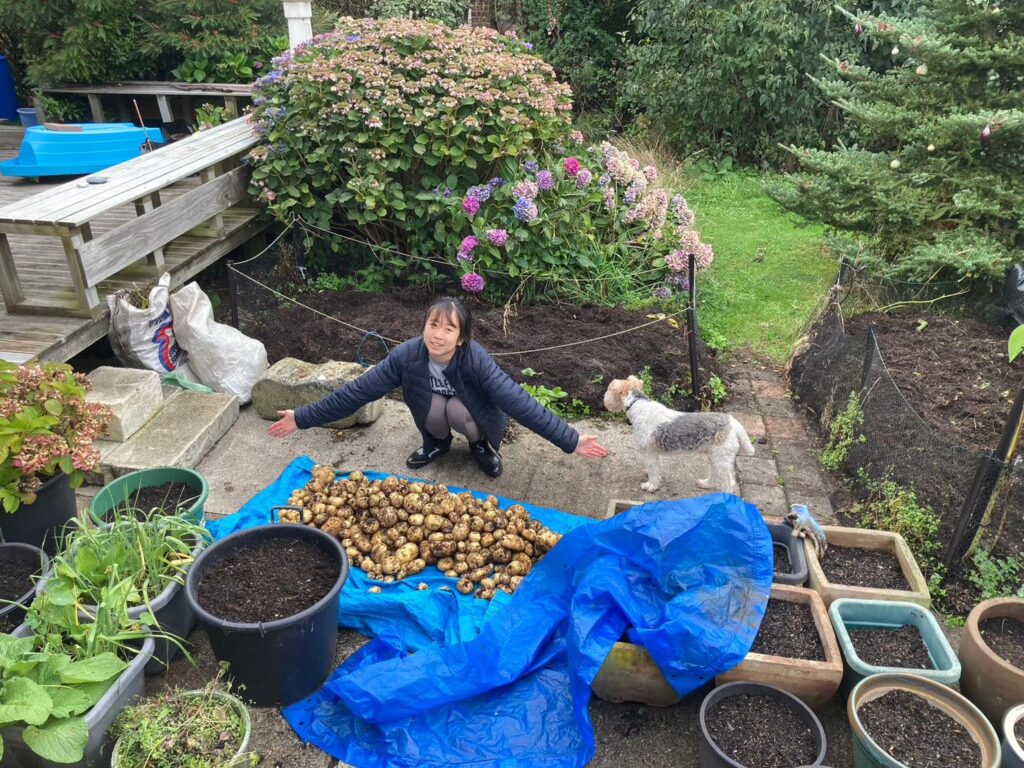
A Win-win System
WWOOF can be described as a win-win system for both the locals and travellers.
Firstly, it is a win for locals who own a large property and need helpers to manage the huge amount of work. Secondly, it is a win for travellers who most definitely need a place to stay.
A short disclaimer: This arrangement might not appeal to those who want a comfortable short-term vacation, but rather those who are looking for a more authentic experience and willing to get their hands dirty.
I am a fan of this system so much that I have done it a total of 10 times during my time in New Zealand! (Some of it alone, some of it with my partner Chiharu)
I hope to illustrate how this system works and the benefits of it with stories from my experiences. Since I am a traveller, I will be highlighting the benefits more from a traveller’s point of view.
Benefits of WWOOF
1) Experience countryside lifestyle 🚜
If you grew up in the city, the countryside life that you get to experience in WWOOF will be an eye-opening experience for you.
My first ever WWOOF was at an Angora goat farm in North Canterbury.
Before I went there, I remember being wildly excited about venturing into the countryside for the first time. Knowing nothing about the countryside, I naively assumed that I could take a bus there. (The host later arranged to pick me up)
I ended up really loving it. My first impression was of the vast and beautiful landscape. The Southern Alps covered in snow was literally in view behind the house.
I learned that it is important to be handy and resourceful while living in the countryside. I saw how often things were reused instead of discarded and how the fireplace could also be used as a clothes dryer or stove!
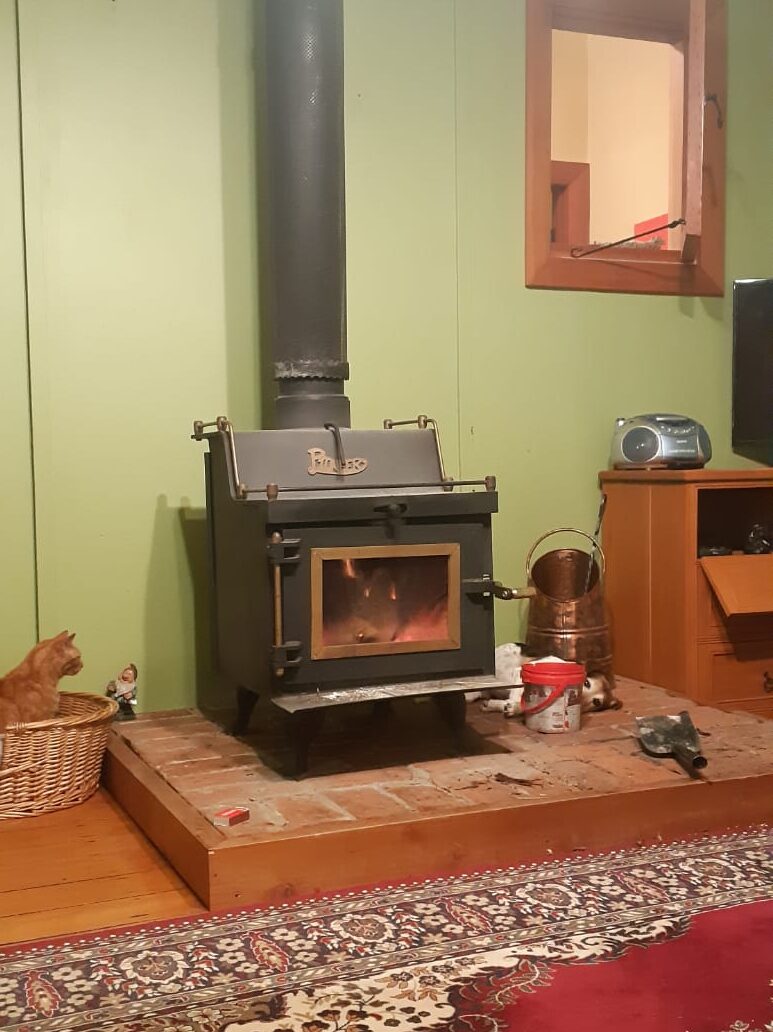
In the countryside, you will also find yourself more connected to nature. It was my first time to get up close to farm animals. Everyday I had to feed a cat, 3 working dogs, a dozen chickens and over 200 goats spread across hectares of land. One of the interesting tasks I helped with was getting them treated for sore feet during winter.
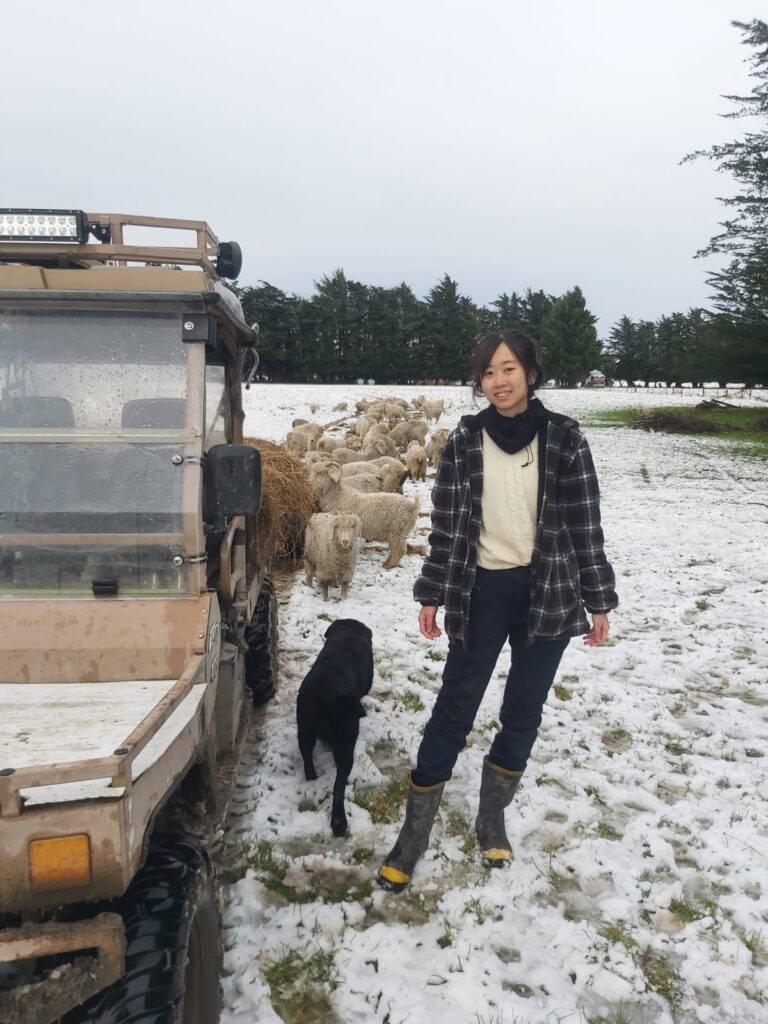
Besides getting to work with animals, you will also get to work on the land.
When I did WWOOF at a permaculture farm called Pukemiro in Taranaki, I helped with a variety of farming tasks like planting potatoes and harvesting garlic. It was satisfying to know that the food I ate for dinner partially came from the effort of my work.
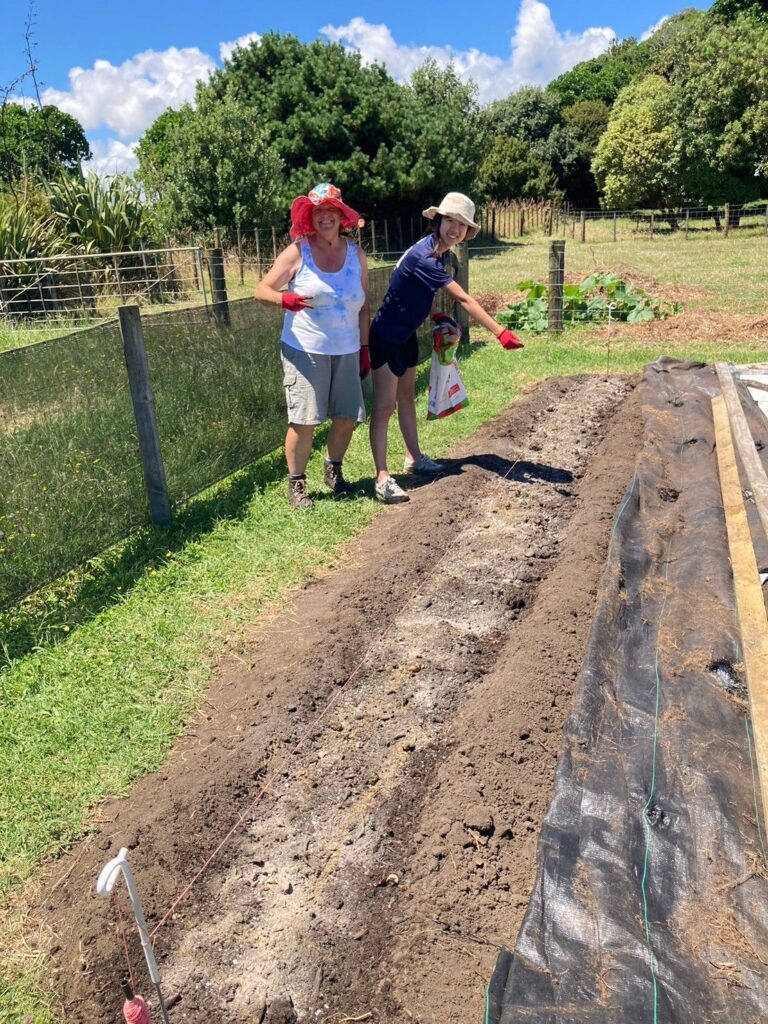
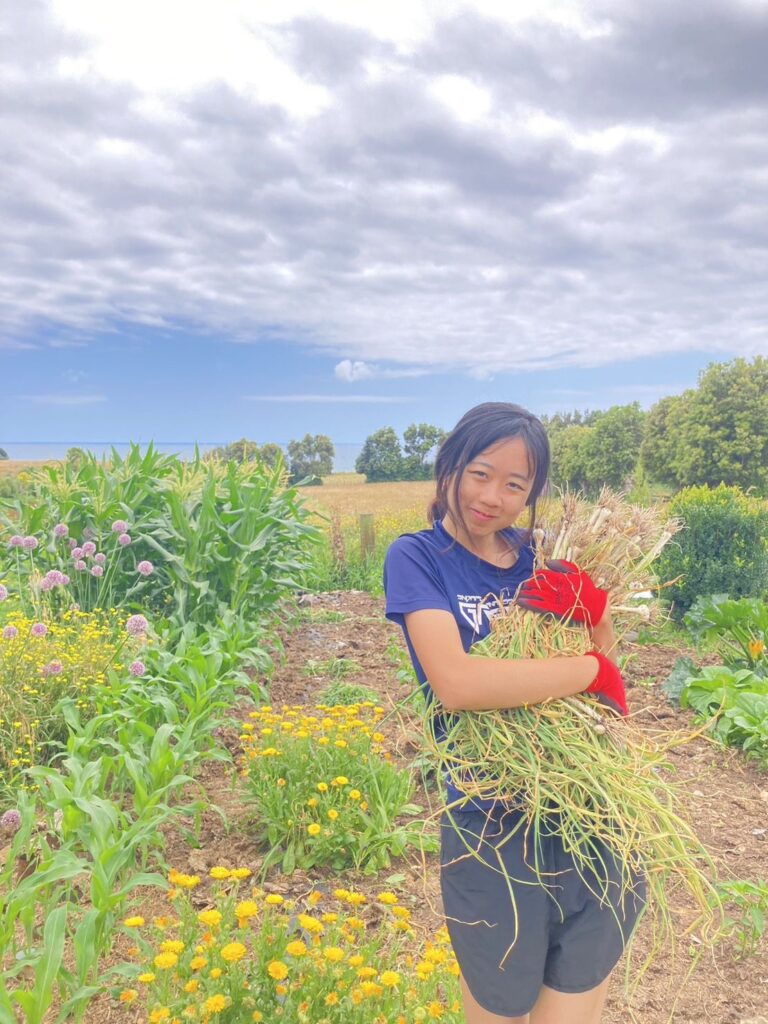
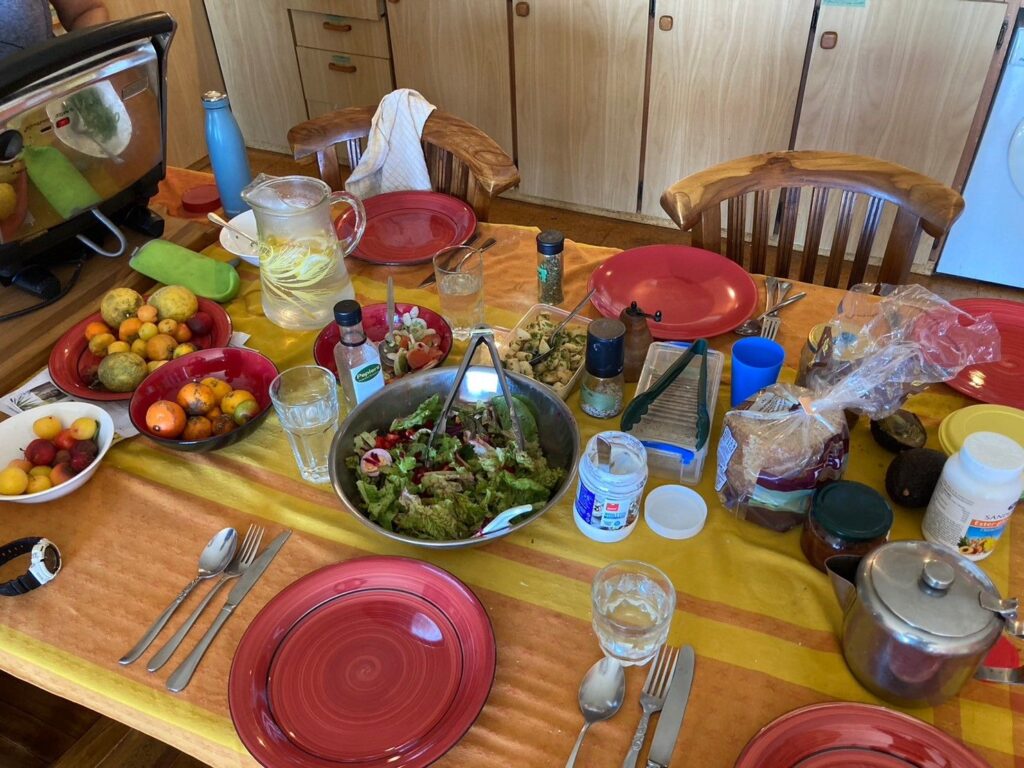
2) Enjoy slow living 🧘
For someone who is into slow living, WWOOF is an ideal arrangement.
Each day after you fulfilled your work hours (mostly in the mornings), you are free to explore the vicinity or do your own things. This is something that you may not be able to do if you commit to a full-time paid job that takes up most of your time and energy in a day.
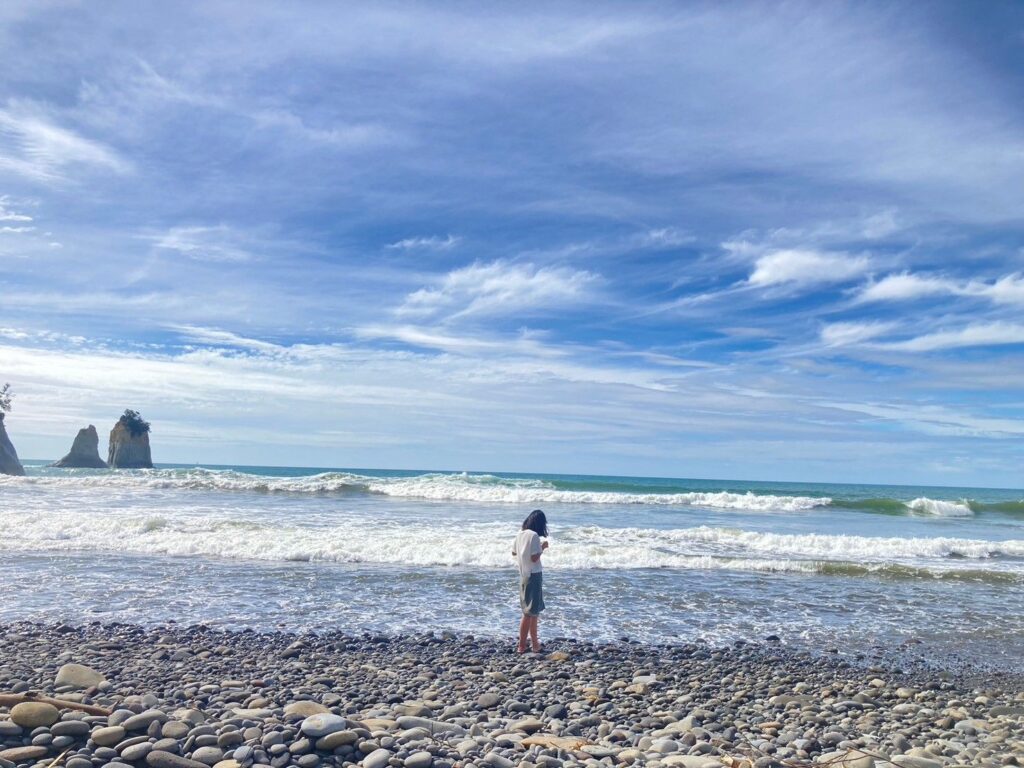
The idyllic environment and slower pace of life in the countryside is perfect for you to engage in leisure activities like reading, writing and playing music.
Contrary to the view that there is nothing to do in the “boring” countryside, I think not being able to go anywhere or get anything easily can actually help you appreciate what you have at the moment better.
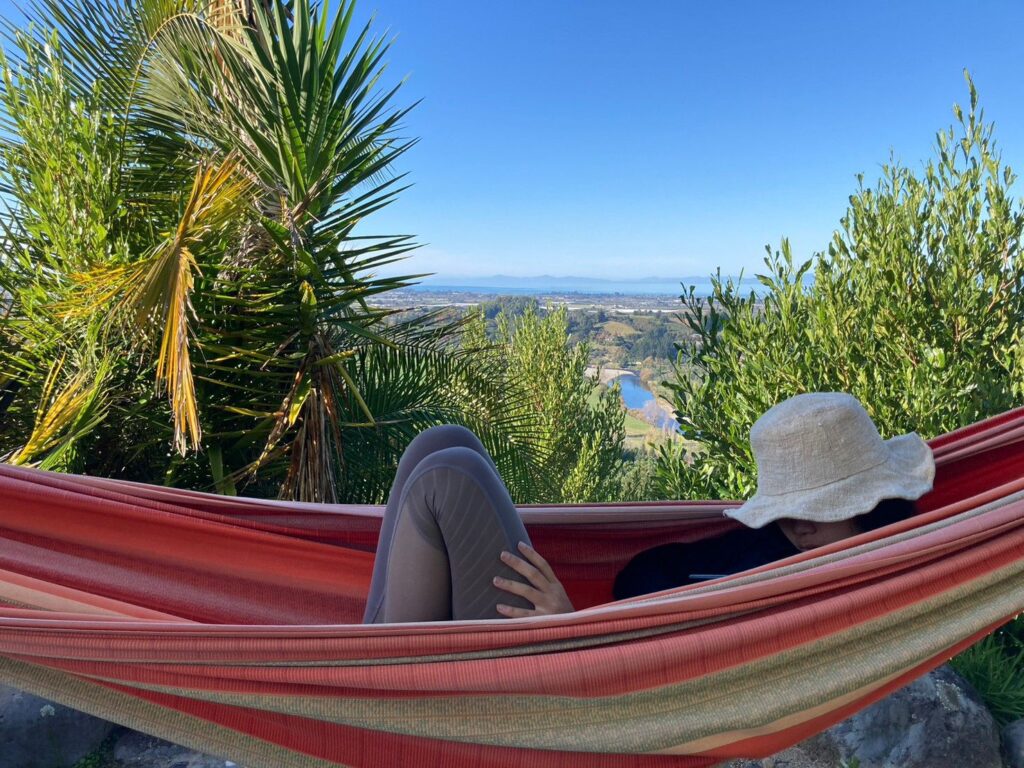
Personally, I value having plenty of free time to rest, contemplate and work on my own projects. This was how I was able to write blog articles like this while travelling.
3) Pick up new skills and knowledge ⛏
Through WWOOFing, I picked up many life skills. These are mostly hands-on skills like cooking, cleaning the house, taking care of animals and gardening.
Back in Singapore, I would never have gotten the chance to do so much gardening. As most houses there have at least a backyard garden, gardening is a common activity. I gained many gardening skills by doing tasks like weeding, mulching, planting and mowing the lawns. (Something I always heard about from TV but had no idea what it meant)
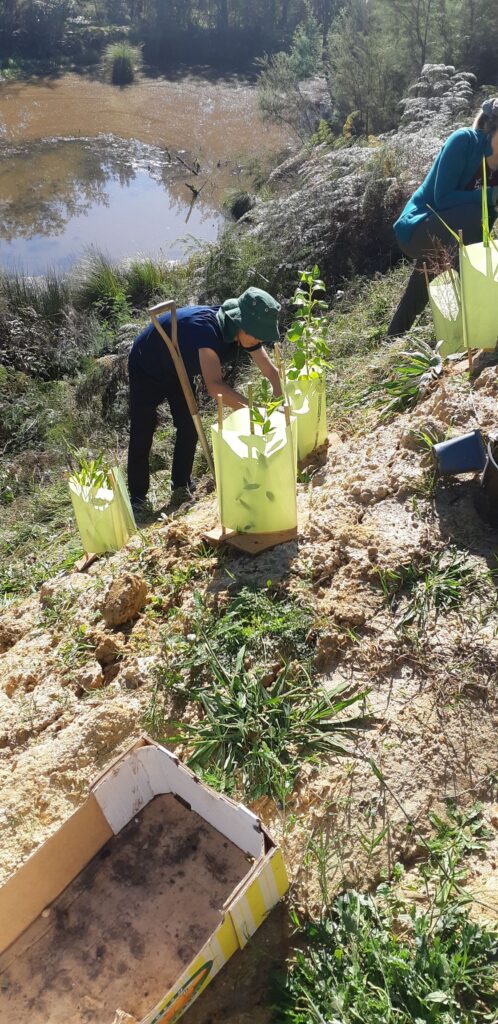
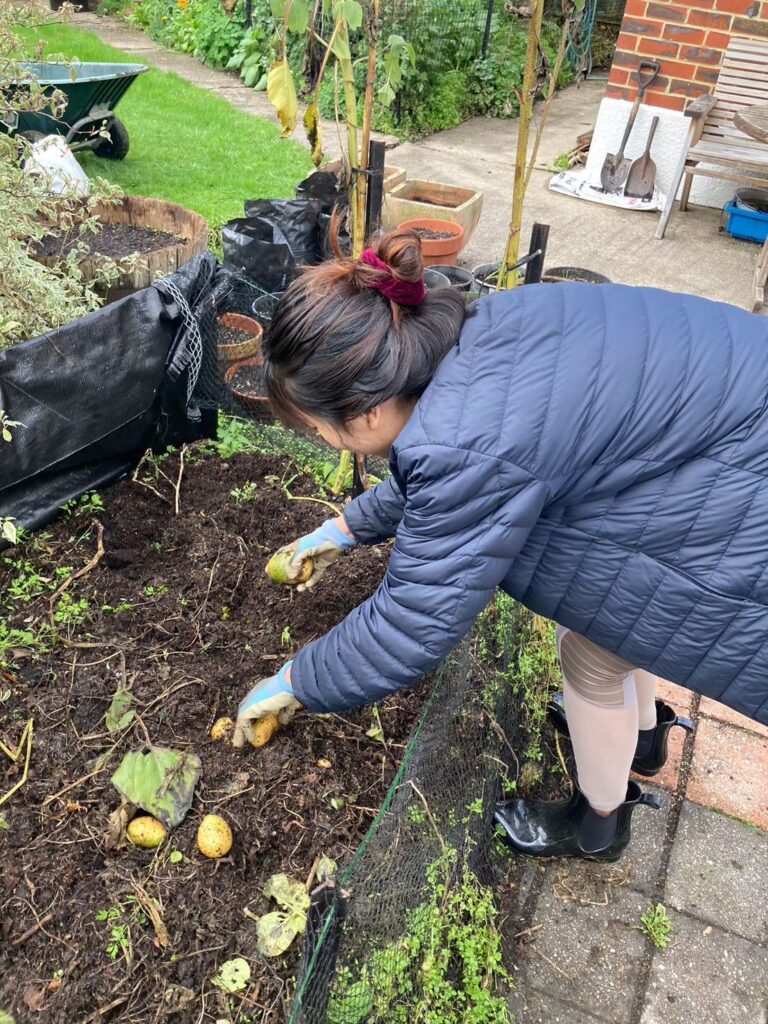
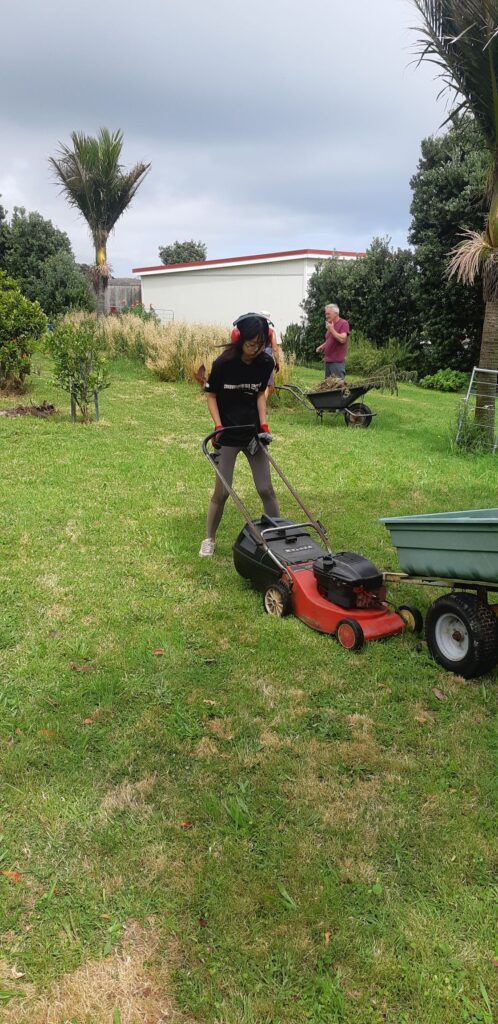
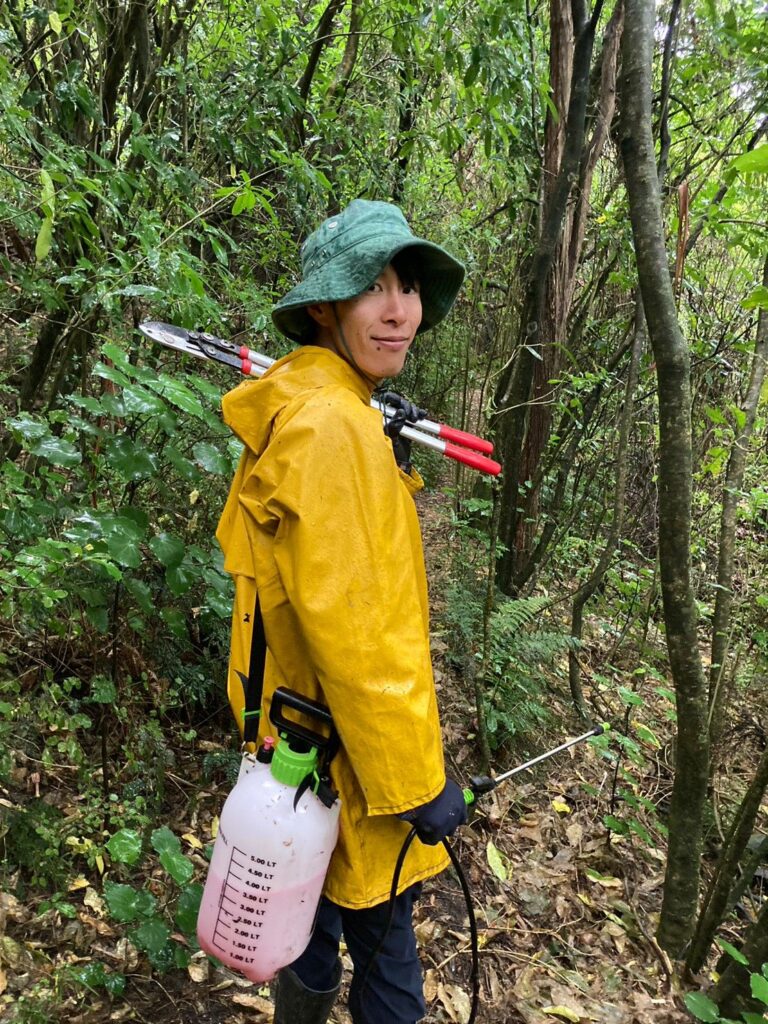
In addition, I was able to learn new fields of knowledge.
Depending on your host’s availability, you may or may not be working alongside your hosts. But even if they leave you unsupervised, they will show you the ropes of how to do something. If you get to work alongside them, it is even better as you can ask whatever you are curious about.
When I did WWOOF at The Food Farm, a self-sufficient lifestyle block in North Canterbury, I learned about permaculture farming.
Permaculture is a method of farming that recognises the interconnectedness of all elements in the ecosystem. They deliberately raise animals and grow crops in a way that removes the need for chemical herbicides, pesticides or fertilisers. For example, compost made from food scraps is used to fertilise the soil. Certain plants which growth are mutually beneficial (called “companion plants”) are planted in close proximity to each other.
I was lucky enough to attend their seasonal workshop where they teach people how to grow their own food. I learned about seed sowing in spring!
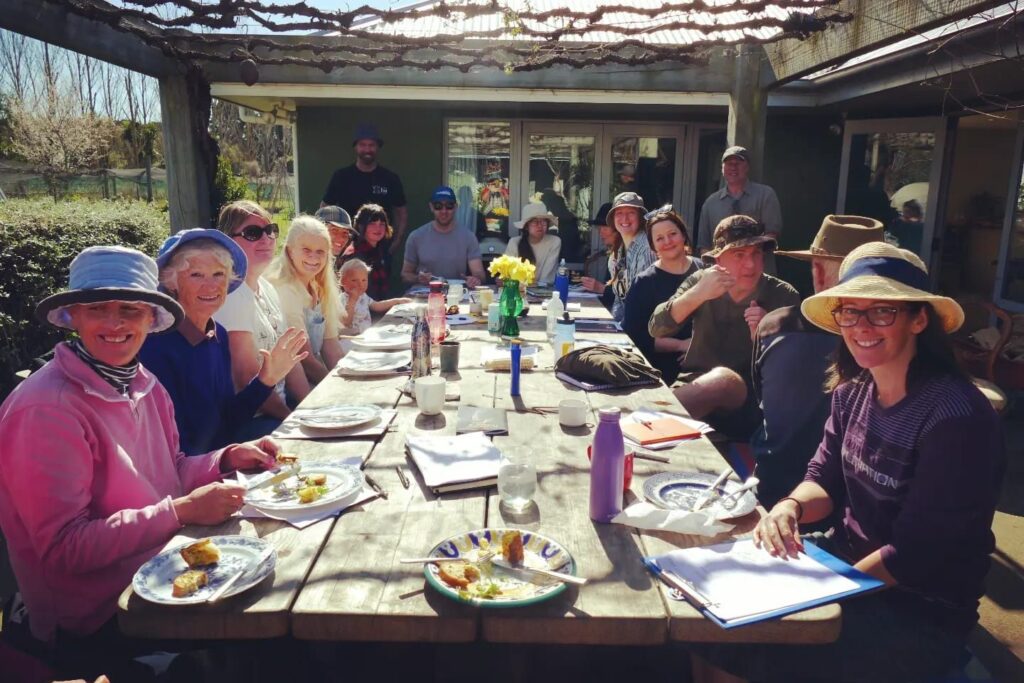
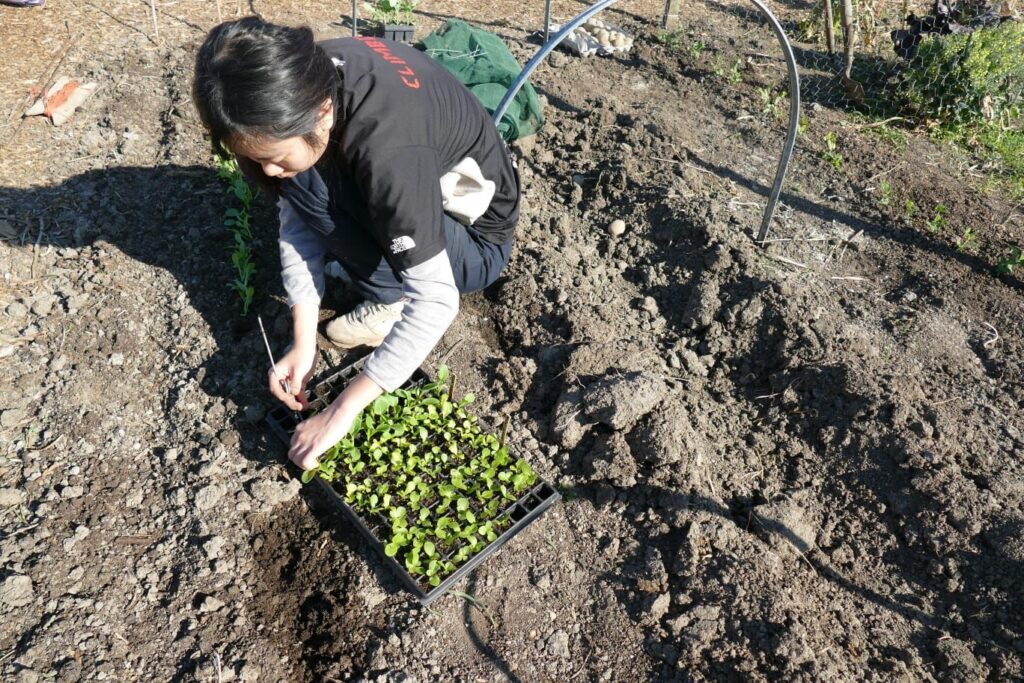
One interesting project I got to help out with was planting a food forest. My host Angela writes for the Lifestyle Block magazine and is very knowledgeable about sustainable practices.
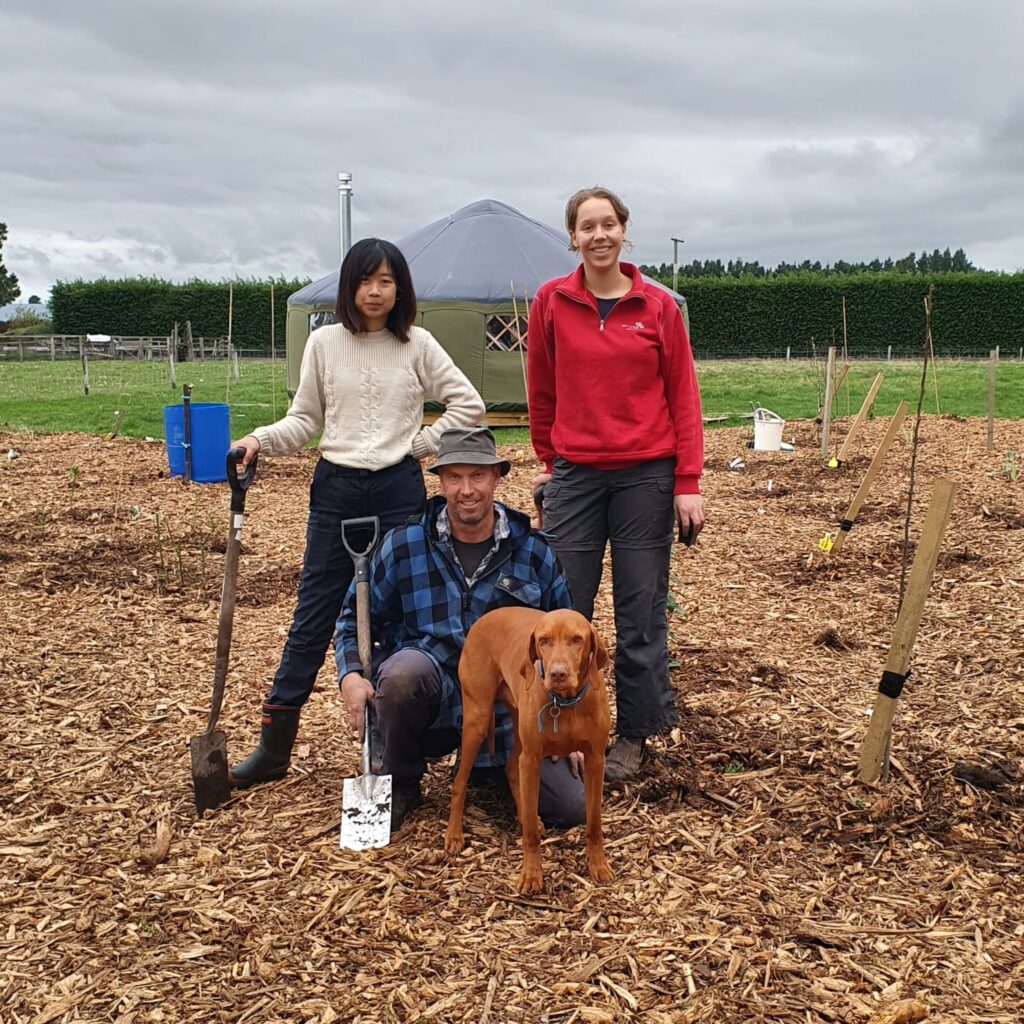
4) Learn about local stories and culture 👨👩👧👦
There is no better way to learn about the local culture than to live with the locals.
As a WWOOFer, you can see the in-and-out of their daily life. This can give you a glimpse of how the locals generally live.
For sure, it differs according to individuals and their demographic profiles. I have had hosts ranging from singles, families to retirees who lead quite different lifestyles.
I find that the prime time for interaction is over the dinner table. That is when you are able to have a conversation about anything. The topic I mostly enjoyed talking about was about cultural differences.
One of the hosts whom I learned the most from is Suzanne, a retired lady who lives in the city of Dunedin. She is very kind and shared with me about New Zealand history, culture, society, politics and even wildlife! (She was one of the head organisers for the Dunedin Wildlife Festival)
Because of her, I was able to know about Kiwi customs and navigate my life early on in New Zealand.
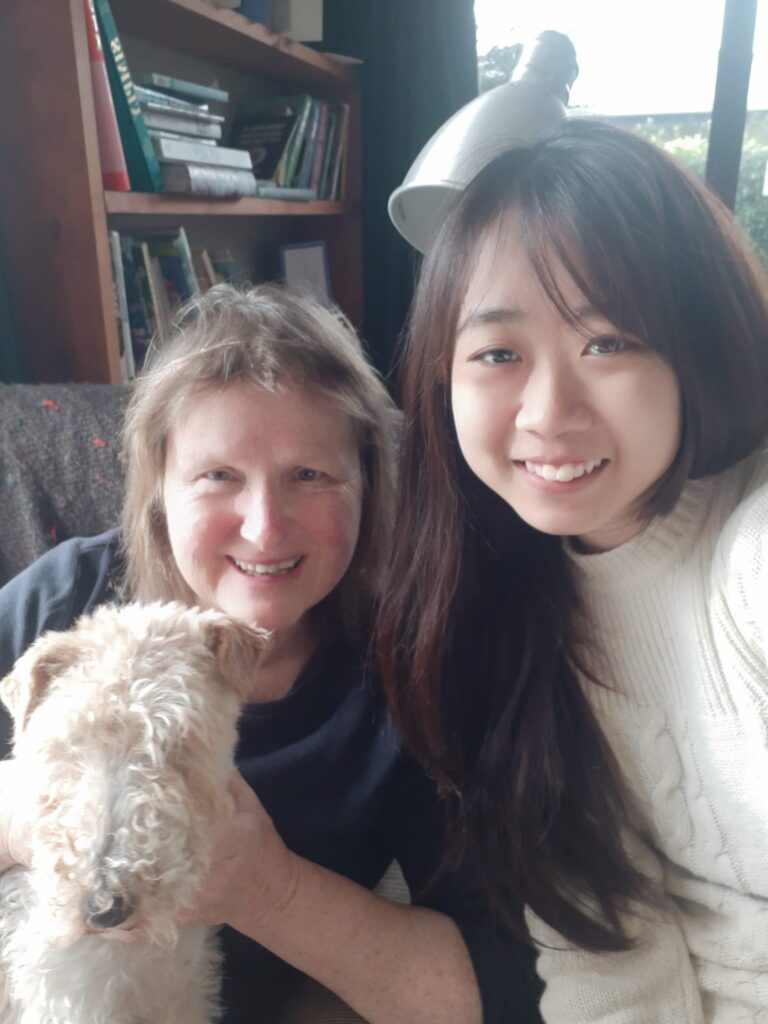
Often, the hosts would share their life stories which are very interesting. Take for example Tom, a host in his early 30s who was building his own cabin in the forest. (Or “bush” as the Kiwis call it) He used to be a scientist but decided that he prefers to have his office in the forest instead. He shared with me about how he collected inspiration for his building his cabin while travelling for a few years around the world.
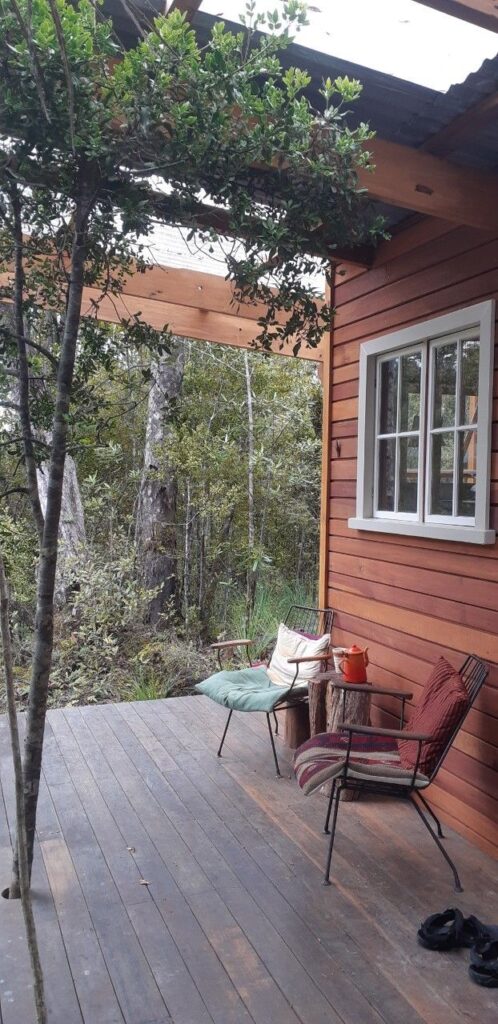
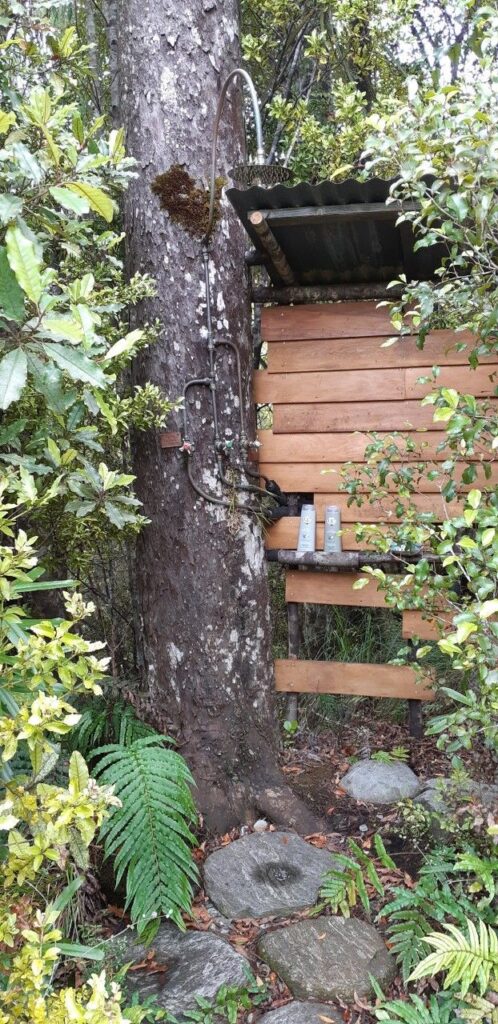
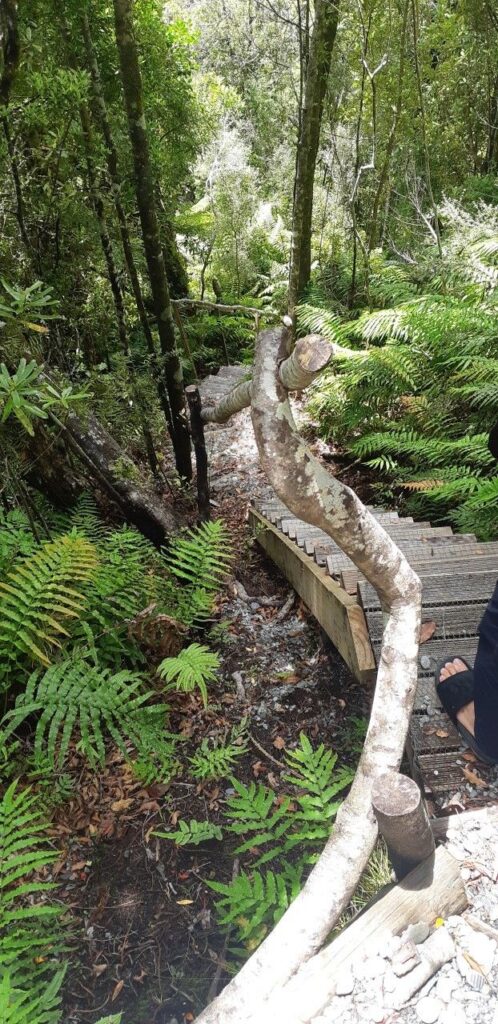
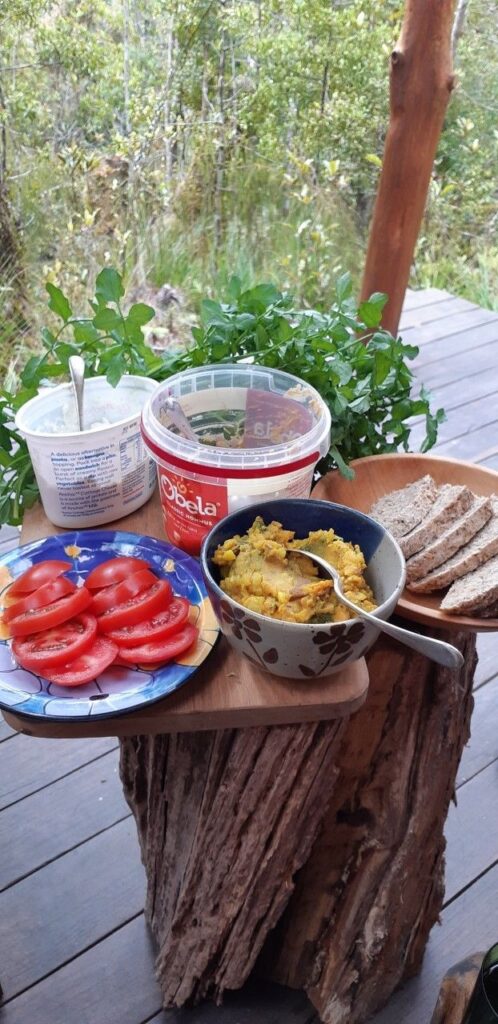
I have always been curious about people who manage to live off-grid. Meeting those who are doing so and understanding their philosophy behind what they do inspires me a lot.
Lastly, your host may invite you to their activities which is another way to learn about the local culture. (This is not something the hosts are obligated to do so count yourself lucky if they do!) I got to tag along to the farmers’ market on the weekends and try out some cool things like wool spinning, hatha yoga and ecstatic dance.
5) Save money 💵
If you are planning on long-term travel, one of the things that you definitely need to think about is where you are going to stay.
You can book a holiday accommodation or rent a room but these options can be expensive. The more budget options are to sleep in your car or tent but it might not be the most comfortable!
When it comes to budget/moneyless travelling options, WWOOF is the deal.
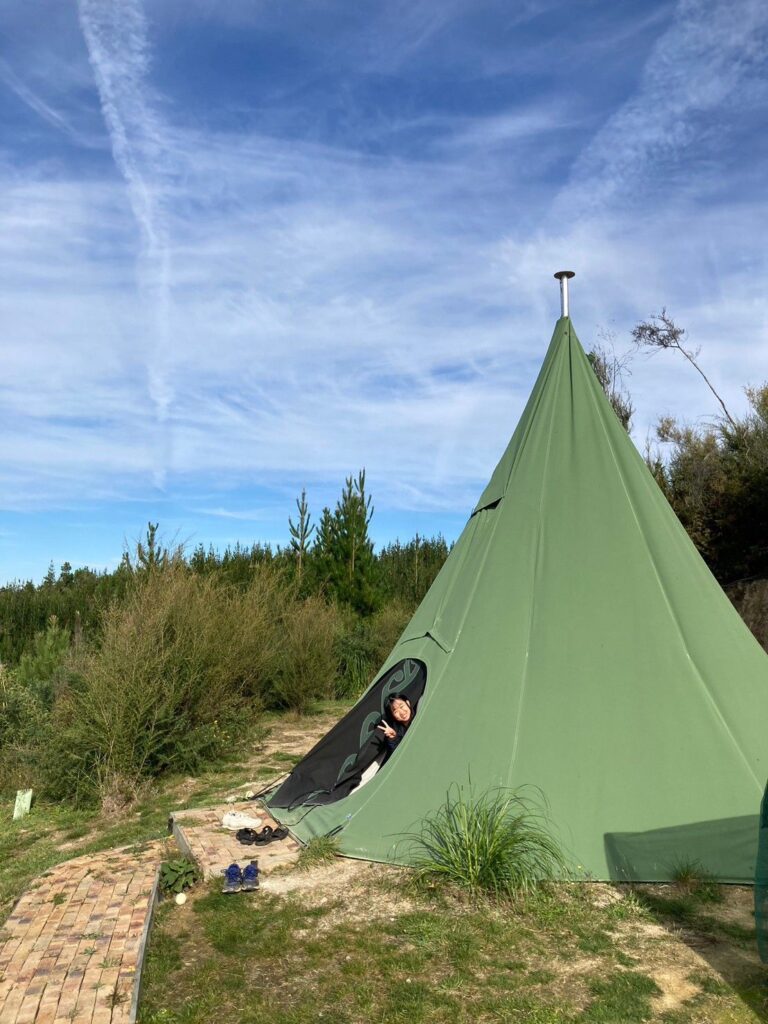
During winter when it was not easy to find a job (with luck I found an ad-hoc gardening job for like 2 days a week), I did WWOOF with a few hosts over 3 months! That saved me from the stress of paying for rental when I had little income.
Furthermore, I was able to stay in some of the most beautiful places in the country. One of my longest stays was at a cabin in a flower farm in Banks Peninsula. Everyday, I weeded around the farm while being surrounded by views of the hills and the ocean.
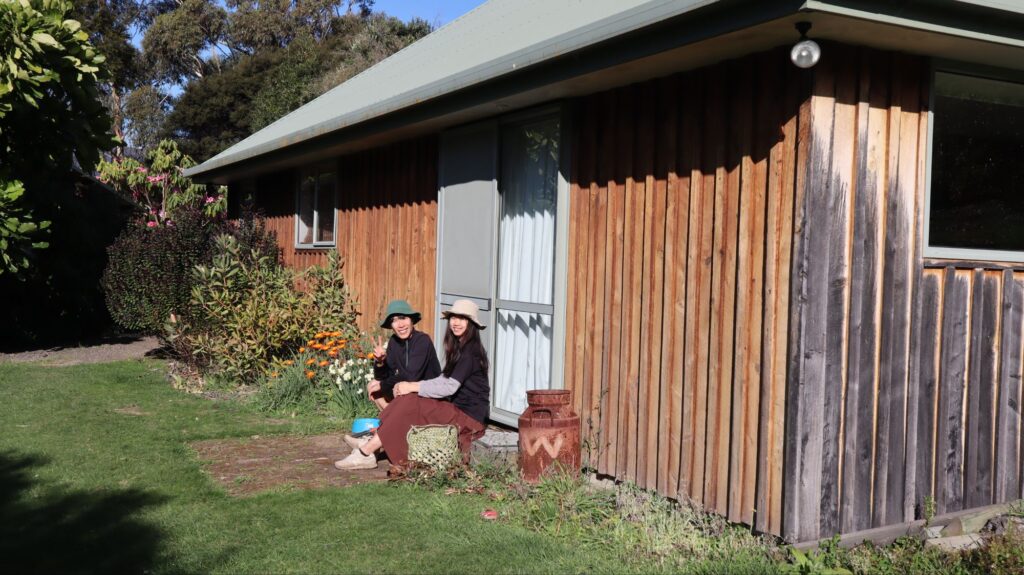
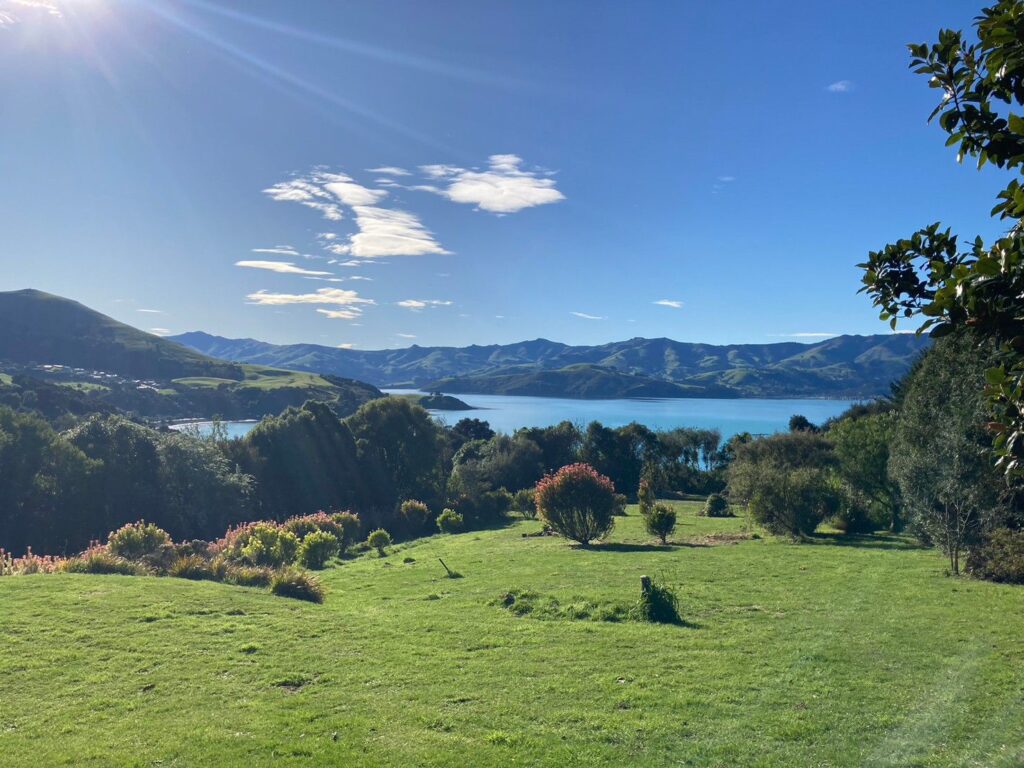
Besides allowing you to save money, WWOOF is an experiment for alternate living.
When I was living in Singapore, my life felt confined to a rat race.
The rat race in a nutshell: Many things in the monetary economy require money (what is called “cost of living”). You are pressured to get a job. When you take up a full-time job, you trade away much of your time and energy. You are left with hardly any time to do what you like but you have a lot of money. What do you do then? The economy encourages you to spend that money on things to compensate for your unhappiness. The cycle continues.
Due to that, I have great philosophical interest in finding out how one can live life in a way that is not strongly tied to money.
When I did WWOOF, I hardly spent any money. I did just enough work in a day to earn my keep for the most essential things – food and stay. I had lots of time. I was happy and did not feel the need to spend on things to make myself happy. I could be more intentional about what I wanted to do instead of doing things primarily out of fear and pressure.
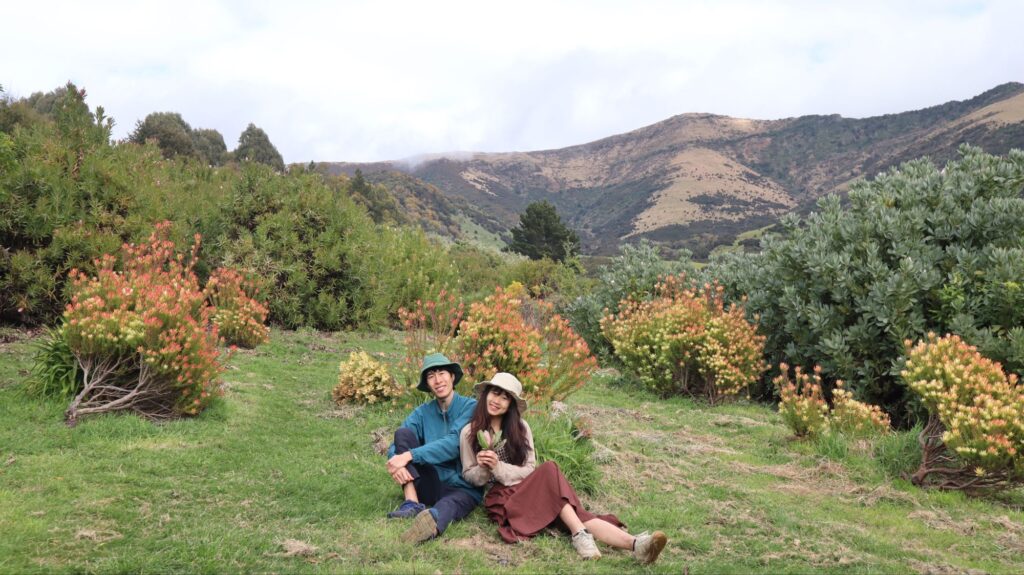
My experiment has proven that it is possible to take money out of the equation and still get what you need. Furthermore, there are bonus benefits to it like the ones I mentioned before. In my last point, I address the most important one.
6) Promoting human relationships 🤝🏻
WWOOF is a mutually beneficial exchange that promotes human relationships.
Imagine if you were renting a room. You pay the landlord and get a room in return. The landlord gets what they want – the money. You both get what you want and that is the end of the story.
Money, as a medium of exchange, tends to make transactions anonymous. This means it does not really matter who are at the giving and receiving ends. There is little to no incentive for a relationship to develop.
However, this is not the case in WWOOF. The hosts are not simply looking for unpaid labour. Likewise, the helpers are not simply looking for a place to stay. Most of them have deeper motivations such as to make new connections or learn about different cultures.
Also, it matters who you are and what you offer in terms of your personality, knowledge, stories or even presence. There is no obligation in this setting which naturally gives rise to the desire to give what you can of yourself.
One of the things I offer my hosts out of good will is cooking a dish from my home country for them. I have proudly cooked Hainanese chicken rice, fried bee hoon and laksa!
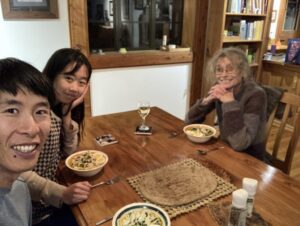
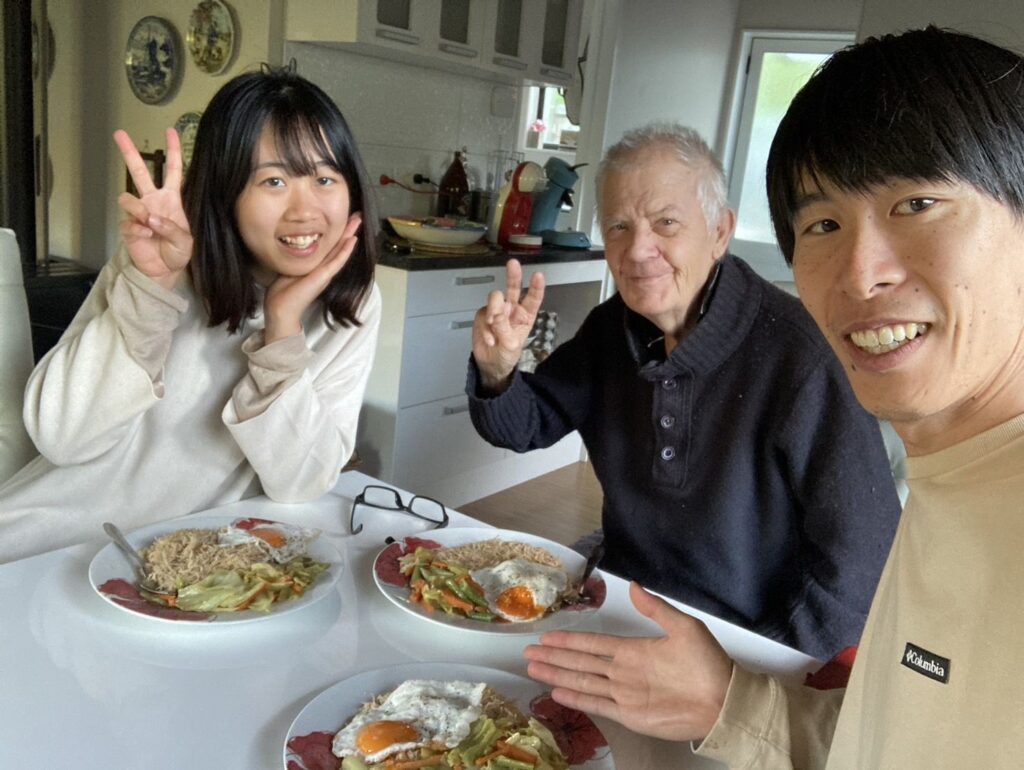
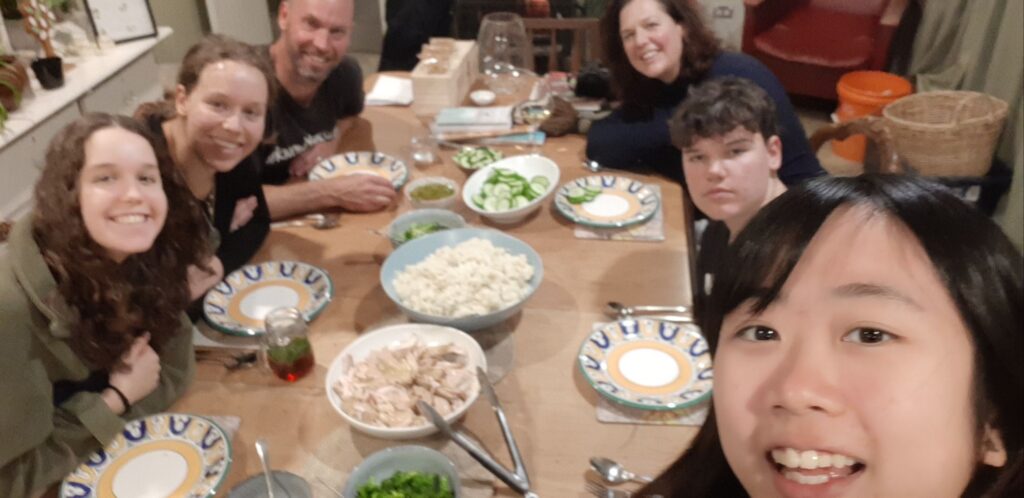
As a result, meaningful relationships between hosts and helpers are often formed. I still keep in contact with some of my hosts.
One of them is Jutta, an elderly lady who lives alone in a lifestyle block in Banks Peninsula. She shared with me many of her life stories, including her experience as a pioneer batch of WWOOF and how she built her self-sufficient property.
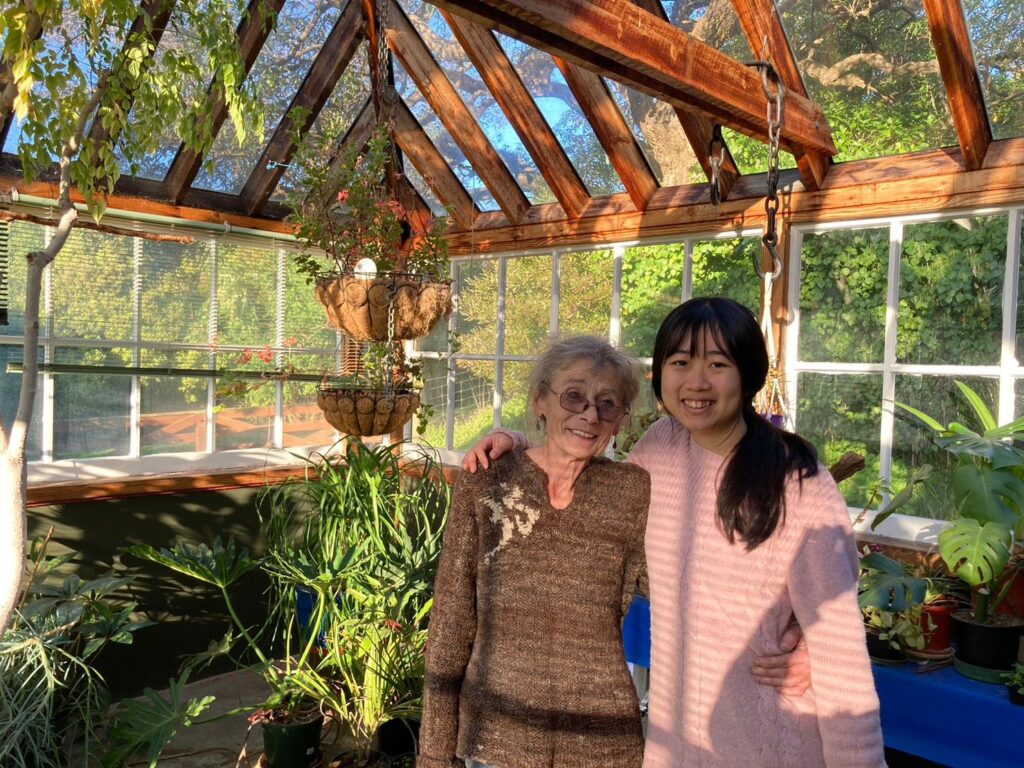
One day while working in the garden, she told me, “Thank you very much for being here. It is so much better when I am not doing this alone.” I was touched to hear that.
We later found out that we have the same birthday and spent our birthday together. Even after I finished WWOOF at her place, I often returned whenever I could to keep her company.
I believe that arrangements like WWOOF have the potential to solve social problems such as the rise in isolation among the elderly. I could see that the elderly hosts really appreciate the company of the younger ones and have a wealth of life experiences to share.
Conclusion
In conclusion, WWOOF is a highly viable way to travel long term.
There is a range of benefits for the traveller who is looking for something more than the usual way of travelling. One can experience countryside life, pick up new skills and knowledge, learn about local culture, save money and build authentic relationships.
It is a win-win arrangement for both locals and travellers. I believe that more systems like WWOOF are needed in the transition towards a healthier and sustainable future.
So if you are curious about trying this out in your upcoming travels, I definitely recommend you to do so!

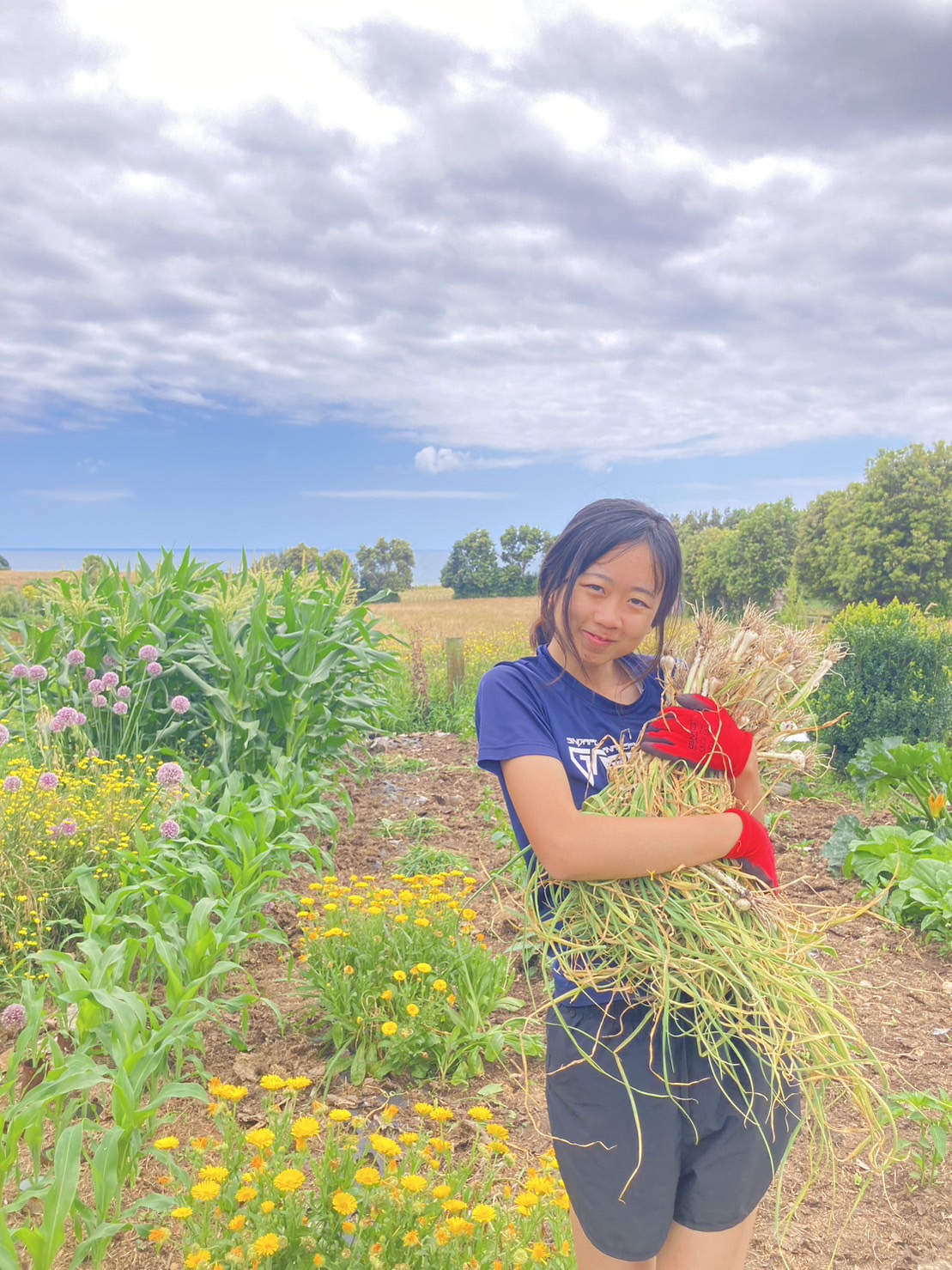

2 Responses
p1ovew